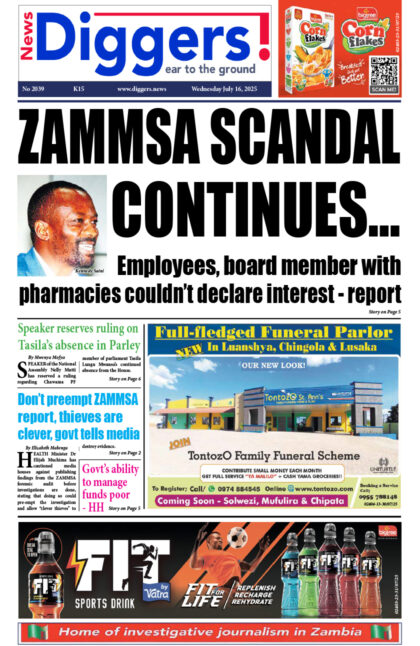THE cost of living for a family of five in Lusaka has breached the K5,000 psychological barrier for the first time in Zambia’s history, according to the Jesuit Centre of Theological Reflection.
Announcing the latest JCTR Basic Needs Basket (BNB), which normally takes into account the cost of living for a family of five across 15 major urban towns in the country, the JCTR stated that the cost of living in Lusaka had hit a first-time high of K5,036.28 in October; triggered by increasing prices of essential household commodities such as mealie-meal.
“The cost of living for Lusaka as measured by the JCTR BNB for an average Zambian family of five hit a first-time high K5,036.28 in the month of October 2016. Some items recording increases in price included mealie-meal, beans, dark green vegetables, cooking oil, bread, sugar, tea and charcoal,” JCTR stated in a press release.
“Other BNBs recording increases included those for Kabwe from K3,475.24 in September to K3,498.15 in October; Mongu from K2,998.85 in September to K3,087.65 in October; Monze from K3,069.80 to K3,133.30; Kasama from K2,869.32 to K3,078.76 and Livingstone from K3,699.66 in September to K3,849.27.”
The Catholic run organisation, whose focus is on people’s living conditions measured through the BNB, also noted that the 2017 national budget’s non-taxable income threshold, which was increased to K3,300, still fell below the cost of living for a family of five.
“The JCTR notes that measures such as an adjusted upward non-taxable income threshold (from the current K3,000 to K3,300 in 2017), in as much as they will cushion hardship for some employees, are not responsive to the reality on the ground for most employees,” it stated.
“The national average cost of living for an average family of five as surveyed by the JCTR BNB is K3,478.31, reflecting a shortfall of K178.31 in the announced income tax-exempt threshold to enable an average Zambian family to afford cost of living. This shortfall, however, is worse for the urban poor in towns like Ndola, Solwezi and Lusaka whose shortfall ranges between K1,000 to K1,700.”
And the JCTR further called for the scaling-up of efforts to improve the living conditions of the majority poor Zambians such as enhancing access to affordable credit by SMEs, among others.


















